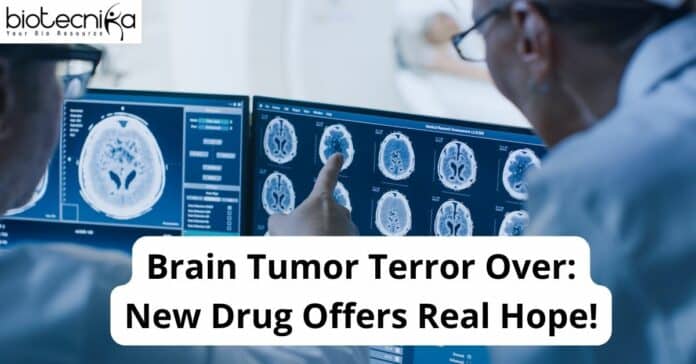Brain Tumor Terror Over: New Drug Offers Real Hope!
In the fight against an aggressive type of brain cancer known as diffuse midline gliomas (DMGs), scientists are finding hope in a medication called ONC201. These deeply entrenched brain tumors are particularly challenging to treat, especially when they affect children, as existing treatments have limited success rates.
A major hurdle in addressing DMGs has been the difficulty of delivering drugs effectively to the brain, mainly due to the presence of the blood-brain barrier. ONC201, previously explored for its potential in treating nervous system tumors, has shown promise in targeting a specific mutation associated with DMGs.
To assess its effectiveness, an international team of researchers conducted two clinical trials involving 30 children and adolescents with DMG and 40 adults. The results were highly promising: patients treated with ONC201 experienced a median overall survival of 22 months for tumors that did not return. This signifies a significant improvement compared to the typical survival rate of 11-15 months without treatment.
Carl Koschmann, a pediatric neuro-oncologist from the University of Michigan in the US, stated, “Before this study, more than 250 clinical trials had failed to improve outcomes. These results could be a groundbreaking development.”
Researchers had previously investigated ONC201 due to its ability to target neural pathways associated with dopamine, pathways that are often more pronounced in tumors. Importantly, ONC201 had shown promise in treating DMGs with the H3K27M mutation, and it proved effective in crossing the blood-brain barrier.
In a phase 1 clinical trial, researchers collected cerebrospinal fluid from patients to gain a deeper understanding of ONC201’s effects. They found that the medication affected the mitochondria of cancer cells, increasing levels of a metabolite known as L-2HG. This led to the reversal of specific epigenetic signals responsible for the rapid growth of the tumor, and this effect became more pronounced with prolonged treatment.
Sriram Venneti, a neuropathologist from the University of Michigan, explained, “This could explain why patients responded so positively to the drug, as it addressed a specific epigenetic abnormality associated with their tumors.”
While a complete cure for DMG cancer remains a distant goal, ONC201 offers hope in breaching the tumor’s defenses. Further clinical trials are ongoing to explore how ONC201 might complement other treatment approaches. Presently, radiation therapy is the primary option, but its potential for causing collateral damage in the delicate brain necessitates the search for more precise and targeted treatments like ONC201.
In the quest to combat this formidable tumor, researchers are cautiously optimistic that ONC201 could represent a significant leap forward. The research findings have been published in Cancer Discovery, offering renewed hope to individuals affected by DMGs.
Stay Tuned on BIOTECNIKA for more latest research trends.



























